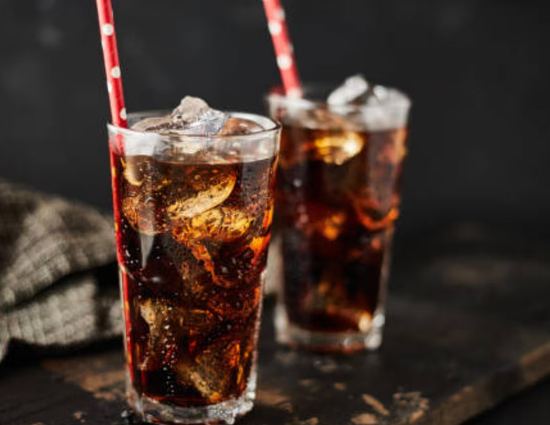Before discussing this subject I have a confession to make. I drink Diet Coke which contains aspartame. My rate of consumption is one to two glasses a day. So reading the headlines where the World Health Organization (WHO) announced it had classified aspartame, the sweetener in my soft drink of choice, to be “possibly carcinogenic,” got me to sit up and take notice.
What the WHO Actually Said
In the WHO media release it notes that “on the basis of limited evidence for cancer in humans” aspartame was possibly linked to hepatocellular carcinoma, a liver cancer. It went on to state that there was “limited evidence for cancer in experimental animals and limited evidence related to the possible mechanisms for causing cancer” related to aspartame consumption. Further noted in its conclusion was that there is “no sufficient reason to change…established acceptable daily intake of 0-40 mg/kg body weight for aspartame.”
That made me want to look at just how much aspartame was I consuming in two glasses of diet cola each day. How much aspartame is in a 340-gram (12-ounce) bottle of Diet Coke or in other branded diet colas? I went looking to find out if aspartame was the only artificial sweetener in these drinks. What I found is represented in the following chart which shows the presence of two artificial sweeteners in diet colas.
| Beverage | Aspartame (mg) | Acesulfame K (mg) |
|---|---|---|
| Diet Coke | 188 | 0 |
| Coke Zero Sugar | 87 | 47 |
| Diet Pepsi | 124 | 32 |
| Diet Pepsi Lime | 125 | 32 |
Remember when Donald Trump was president and the Diet Coke big red button was featured on his Oval Office desk? It was reported that he was consuming 8 to 10 Diet Cokes per day. Did that level of consumption make him vulnerable to cancer? Not based on the WHO guidelines. Even with his weight, the possible cancer risk was low.
I then looked at the other sweetener that showed up in diet colas. Did the WHO have similar data and instructions about acesulfame potassium which is the main ingredient in artificial sweeteners like Splenda, Equal and Nutrasweet? The WHO’s general advice on sweeteners can be found in a May 2023 WHO release that cautions against using any of them, not because of cancer risk, but rather because they do “not confer any long-term benefit in reducing body fat in adults or children.”
The WHO’s recommendation on sweets is to consider eating foods with naturally occurring sugars like fruit. It advises us to drink more unsweetened beverages because our cravings for sweet things are putting us at risk for Type 2 diabetes and cardiovascular diseases.
Why We Crave Sweet
Our craving for sugar goes back to our human ancestors. Richard Johnson, a professor at the University of Colorado Department of Medicine has written a book entitled The Sugar Fix. In it, he hypothesizes that in our ancestral past, we faced a climate and environmental crisis that introduced fructose as a food source to help stave off starvation. This caused an adaptation to crave natural sugars which triggered the chemical dopamine in our brains. Dopamine is known as a feel-good chemical, and since then, we have been hooked on sweets.
Interesting to note, the WHO provides guidance on sugar in our diet. It recommends we do not exceed 10 teaspoons per day at all stages of life with the ascribed benefits being better weight control and less tooth decay.
The Press Response to the WHO Release
The aspartame alert made headlines around the world in the last week. A New York Times article read “The WHO Says Aspartame Is Possibly Carcinogenic.” NPR, Canada’s CBC, Reuters, Bloomberg, other news services and social media ran with the “possibly carcinogenic” headline. What they didn’t do is dig deeper to look at the science as well as the WHO’s general recommendations regarding sweeteners, both natural and artificial.
For a person who has always battled with weight gain, seeing artificial sweeteners being added to a growing list of things bad for us, I found myself doing what the newspapers and news services didn’t do. Why? Because I have been trying to manage my weight after dealing with the consequences of the COVID-19 pandemic which led to isolation and reduced activity. In our building, the gym was in lockdown. After getting COVID which caused heart complications and multiple hospitalizations, my health didn’t get better. Instead, I gained 15 kilograms (more than 30 pounds) from a lack of activity and a dopamine craving for things sweet.
Now I am using portion control to manage calorie intake and in our new apartment have been taking advantage of the pool and gym regularly. I continue to drink artificially sweetened sodas in moderation. I weigh the risks. Am I more likely to get cancer, or Type 2 diabetes from the weight gain of the last 3 plus years?
I’m happy to say that the weight is coming off at a steady and manageable rate. And although I have increased my water intake, I still crave sweets in my diet and fulfil that need with an occasional Diet Coke.
My conclusions about the aspartame and cancer headlines are this. When you read about anything in the news these days it is in your interest to learn more. Dig into the details. Because in our social media age, a couple of hundred words in a tweet or thread should not be the sole source of understanding and knowledge.









